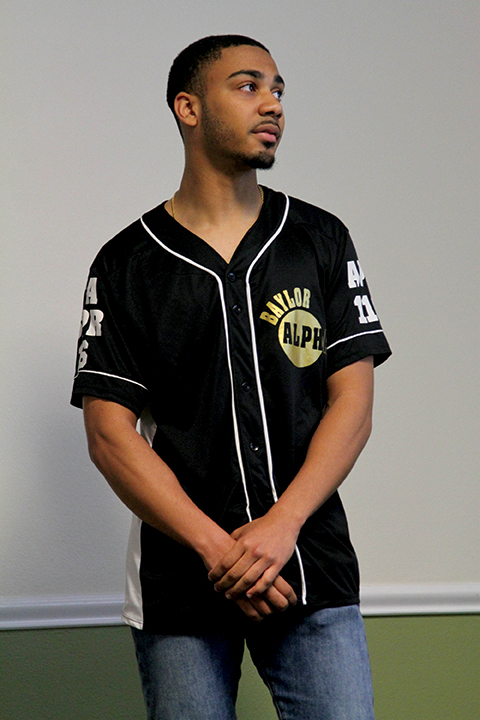By Joy Moton | Staff Writer
The Tau Alpha chapter of Alpha Phi Alpha Fraternity Inc. hosted a forum to address mental health issues in the black community Wednesday evening in the Cowden Room of the Bill Daniel Student Center.
Dallas junior Eriq Hardiman said the fraternity decided to host an event addressing this topic because suicide is not a prevalent topic of discussion in the black community, and it is a major concern as finals week approaches.
“Statistics show that during finals week people are more inclined to commit suicide,” Hardiman said. “We’re speaking primarily about African-Americans because that’s not a conversation that takes place often. We definitely appreciate having the Counseling Center be a part of the conversation to help mediate and help students that may be going through dark times.”
Representatives from the fraternity and staff from the Baylor Counseling Center engaged in a conversation about the causes of mental health issues in the black community.
The event began with members sharing statistics about suicide rates among the black community in America. They also noted that African-American men are typically more concerned about stigma than seeking help.
Dr. Vincent Walford, post-doctoral psychology fellow and coordinator of outreach for the Baylor Counseling Center, said it is important that students receive an education about these issues.
“The best thing you can do is be supportive by educating yourself. Peers learn better from other peers,” Walford said.
Walford also said self care is key. Students are encouraged to exercise, take walks and engage in community so they do not feel alone.
“Try not to isolate yourself from other people. Y’all can edify each other because y’all are all going through the same thing. Reach out to your support system and let them know what’s going on,” Walford said.
Dr. Monique Marsh-Bell, assistant director of community programs and senior psychologist, addressed the idea that mental illness is often associated with weakness.
“There’s this idea in minority communities of being strong, and if you admit to having a weakness, it implies that you’re weak,” Marsh-Bell said.
Marsh-Bell said she sees many students who are not taking care of themselves because they are so weighed down by academics. She said it is important for students be educated enough to recognize the difference between normal stress and symptoms of depression. She said the most important thing college students can do is take care of themselves.
“Being in a college environment is very competitive and rigorous, but your body and mind can only handle so much. Take a voluntary break or eventually you’ll take an involuntary break,” Marsh-Bell said.
The speakers also addressed faith in relation to mental health issues.
“There’s this idea of if you’re a strong Christian why are you struggling with mental health. Just pray,” Marsh-Bell said.
Walford said an individual can be a Christian, and still experience mental health issues. He said prayer is a helpful thing, but if individuals are struggling they are encouraged to seek other resources.
The speakers listed some signs of depression and suicide including isolation, visible tiredness, negative view of themselves, giving away possessions, struggling with sleep and change in appetite.
Marsh-Bell emphasized that although people typically notice when there is a change, sometimes there aren’t signs.
“There is a misconception that if someone committed suicide, they should have seen something or notice something. That is not always the case. People can be functional and still struggling,” Marshfield said.
As students anticipate finals week, Marshfield said students should take care of themselves and place themselves in environments of reassurance.
“Specifically in the black community at a predominantly white institution, we’re in comparison to the majority,” said Houston junior Reginald Singletary and president of the chapter. “Much of the programs that could be a support system don’t focus on specific issues in the black community, and we are constantly reminded of our race just being in spaces like Baylor. It’s important to communicate with each other about when, where and how we can love and protect each other at all times, and let each other know we don’t have to go through anything alone.”



